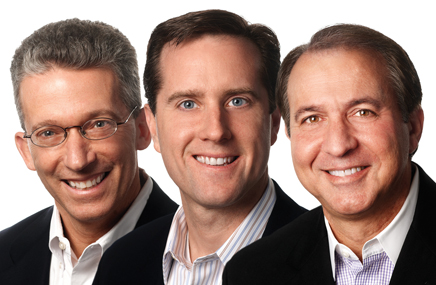Healthcare Regional Marketing goes about its business in a different way than most other firms in this particular line of work do. To begin with, the “Regional” in the name of the Cincinnati-based firm refers to virtual regions rather than geographical ones. Not only that, HRM has managed to fly a bit under the radar.
As a matter of policy, the firm doesn’t discuss the clients with whom it works—although its web site identifies such A-list pharma players as Bristol-Myers Squibb, Sanofi Aventis, Boehringer Ingelheim and Johnson & Johnson. Similarly, a March press release trumpeting the firm’s fifth anniversary notes that “the firm has already worked for six of the top ten pharmaceutical companies and handled the three biggest brands in the world over the past five years.”
So there’s that. But a conversation with CEO Bill Goldberg reveals that HRM may be that rare promotional entities: one that is less interested in puffing out its own chest than in thoughtfully, soberly discussing the processes that have fueled its success. At the same time, Goldberg admits that “we have worked really hard to refine our positioning” and acknowledges that one of HRM’s main challenges is “how do we tell more people about what we do and how we do it?”

So what, precisely, constitutes HRM’s vision of Regional Marketing? “A lot of people think ‘regional’ in terms of geographic regions, but what we have is a patented process that looks at virtual regions,” Goldberg explains. “We group together like markets after doing exhaustive analysis.”
Goldberg is the first to admit that the concept of regional marketing isn’t new. The way HRM practices it, however, prioritizes deployment and execution. “We can make it happen nationally. Others might have done the strategic-planning part of it, but they couldn’t execute. They couldn’t figure out how to scale,” he says. Too, Goldberg stresses that changes in the healthcare business demand similar changes in approach. “It’s critically important that we deal with the differences in markets. If you think about it, pharma has sales forces, physicians, patients, so many others—but in many cases, we still tend to do things as a global brand. Local market strategies are what make the difference.”
To that end, the firm has introduced HRM Housecalls, a monthly series of e-mails from healthcare providers to patients afflicted with a disease or condition. The missives include medication and disease-management advice, and anything else that might prove relevant. “Physicians have so little time to spend with their patients, so this is a way to add value and stay in touch,” Goldberg explains. “It sends the message, ‘I care about you as a patient,’ which can certainly help with customer satisfaction.”
The goal moving forward for the 38-strong HRM, then, is to serve as an industry evangelist of sorts, one that helps refine business and marketing models for clients and its agency peers. “This isn’t to sound too self-impressed or anything like that, but we honestly believe that we represent more than a company,” Goldberg says. “We believe we represent a way of doing marketing for the future.”
From the July 01, 2012 Issue of MM+M - Medical Marketing and Media







